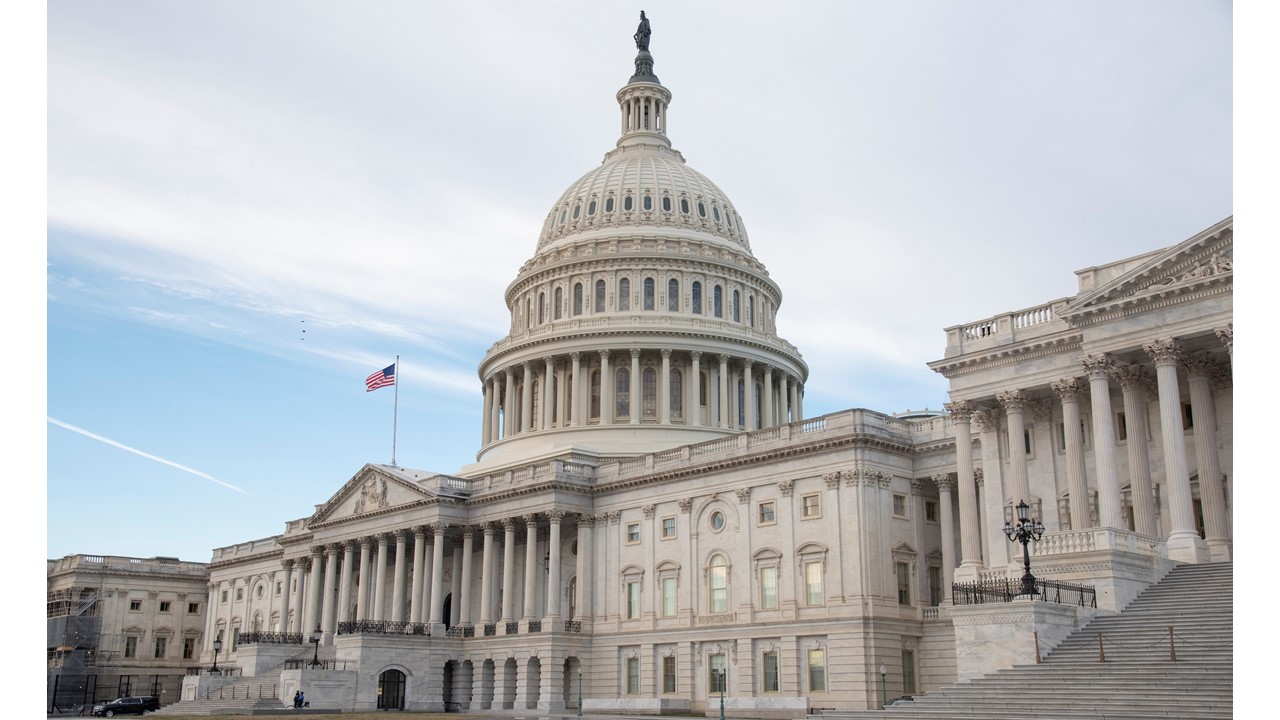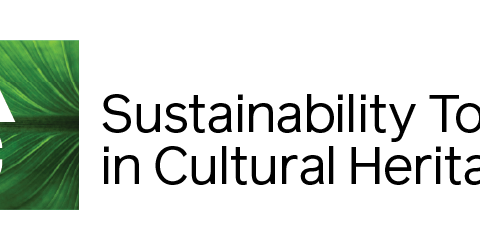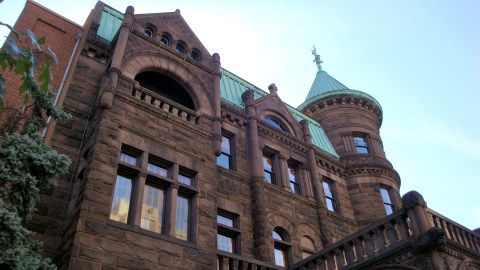
Support Field-Wide Advocacy for Museum Relief:
The current crisis is taking a distressing financial toll on cultural organizations, and AAM is no different. In these challenging times, we ask that if you can, consider supporting our advocacy work and making extensive COVID-19 resources freely available for our field, by making a donation or becoming a member of AAM. Thank you for your much-needed support.
Advocacy Alert – May 6, 2020
In this Alliance Advocacy Alert
- Urge Congress to Support the Museum Community in Phase 4 Economic Relief
- COVID-19 Advocacy for Museums
Urge Congress to Support the Museum Community in Phase 4 Economic Relief
As the U.S. Senate returned to Capitol Hill this week and the U.S. House of Representatives could return as early as next week, we must continue to make our voices heard to our members of Congress in support of museums. As follow up to the CARES Act, Congress is very quickly developing an additional economic relief and recovery package in response to the COVID-19 pandemic and its impact across many industries.
Now is the time to contact your legislators to let them know what the museum field is facing and urge them to provide critical support for museums.
CONTACT CONGRESS ABOUT COVID-19 RELIEF
The nation’s museum community is facing an existential threat from the closures required to address the COVID-19 pandemic. Addressing this threat requires decisive action from the U.S. Congress beyond that contained in legislation enacted in late March. Museums anticipate closures and reduced visitorship through most of 2020. Normal revenue from admissions fees, retail sales, and event rentals have effectively ceased, and charitable contributions are expected to continue to decline dramatically. Amidst these challenges museums are navigating complex decisions related to planning phased reopenings and struggling with when appropriate to do so.
As Phase 4 COVID-19 relief legislation is developed, we urge Congress to:
- SBA and Mid-Size Business Loan Program: Extend the Paycheck Protection Program and loan forgiveness through December 2020, and make nonprofits with more than 500 employees, including museums, eligible for loan forgiveness. Priority number one is to keep as many employees in their jobs as possible for as long as possible. Many museums employ large numbers of part-time and temporary employees, including students, as part of delivering their public outreach and education missions, and therefore exceed the current 500 employee cap for eligibility in this program. In addition, adjust the Economic Stabilization Fund or other mid-size loan programs to support nonprofit employers with between 500 and 10,000 employees, including loan-forgiveness.
- Funding for IMLS: Include supplemental funding, specifically for museums, to be administered by the federal Institute of Museum and Library Services (IMLS) to cover needs not filled by the Paycheck Protection Program. This would include assisting museums in developing and sharing distance learning content, as well as pandemic recovery planning and implementation. If the Paycheck Protection Program is inadequate to meet the needs of the museum community, then the supplemental funding must include $6 billion in funding for the IMLS – Office of Museum Services specifically for museums’ general operating support and payroll.*
- Charitable Deduction Expansions: Expand the universal charitable deduction provision in the CARES Act by removing the $300 cap. Extend the CARES Act removal of the 60% limit on Adjusted Gross Income that may be deducted through charitable gifts of cash.
- Health and Safety Infrastructure Upgrades: Include nonprofit museums in the House Transportation and Infrastructure Committee’s $760 billion “Moving Forward Framework” aspects of the legislation for pandemic-related health and safety infrastructure upgrades related to reopenings and energy-efficient retrofits.
*(The $6 billion figure is a conservative estimate based on budget numbers from several museum associations and numbers from the Oxford Economics/AAM’s “Museums as Economic Engines” study. The American Alliance of Museums calculates that museums are losing at least $33 million a day due to closures as a result of COVID-19, will be in desperate need of significant federal support, and that the U.S. Congress needs to include at least $6 billion for nonprofit museums in economic relief legislation to provide emergency assistance through December. The study shows the museum field directly employs 372,100 people and generates $15.9 billion in income each year. It costs $1.3 billion to keep 370,000 people employed per month so the estimated cost through December 2020 is approximately $6 billion minus the two-months of expected assistance from SBA-related loan programs.)
Talking Points
Museums are a robust and diverse business sector, including African American museums, aquariums, arboreta, art museums, botanic gardens, children’s museums, culturally-specific museums, historic sites, historical societies, history museums, maritime museums, military museums, natural history museums, planetariums, presidential libraries, public gardens, railway museums, science and technology centers, and zoos.
Nationwide, our museums are losing at least $33 million a day due to closures as a result of COVID-19 and will be in desperate need of significant federal support to maintain jobs, secure our cultural heritage, help to rebuild our nation’s tourism industry – and simply to survive the months to come.
Museums are economic engines. Economic impact data compiled by the American Alliance of Museums and Oxford Economics shows that the museum economy contributes $50 billion a year to the U.S. economy and generates $12 billion in tax revenue to local, state, and federal governments.
Museums also are vital local sources of employment, supporting 726,000 direct and indirect jobs annually. Museums play an essential role in the nation’s educational infrastructure, spending more than $2 billion a year on education. The destabilizing effects of the current crisis place the future of these contributions to the U.S. economy and education system at great risk. If these businesses fail during this crisis, then there will be no jobs to which many thousands of displaced workers can return.
Museums nationwide are closed and have canceled events. Most nonprofit museums rely on earned income for at least half of their revenue; their economic lifeblood is people visiting. Dramatic closures and stay-at-home orders have had a devastating impact on the nonprofit museum community, which operates on thin margins of financial sustainability, without large designated operational reserve funds or access to tax-relief benefits, and is often largely dependent on earned revenue from visitors passing through their doors. We estimate as many as 30% of museums, mostly in small and rural communities, will not re-open without significant additional and immediate emergency financial assistance beyond the CARES Act.
Furloughs and layoffs among museum personnel are increasing. As employers, museums care deeply about the welfare, health, and financial stability of hard-working staff, and are concerned that increasing unemployment among museum personnel may exacerbate broader community issues of lack of access to health care, food insecurity, and even homelessness that will make the COVID-19 response much more challenging.
Museums have impressive support from the public. According to a recent public opinion poll, 96% of Americans would think positively of their elected officials taking legislative action to support museums, regardless of political persuasion or community size. 97% of Americans believe that museums are educational assets, and 89% believe that museums contribute important economic benefits to their community. Museums are also the most trusted source of information in America, rated higher than local papers, nonprofit researchers, the U.S. government, or academic researchers. Museums can leverage this high level of public trust to provide education on COVID-19 and fight misinformation about its spread. By empowering the public with the information they need to make informed decisions and lower their risk of contracting or spreading disease, museums can help sustain healthy communities, maintain calm, and reduce the chances for an increase in discrimination or xenophobia often created by global diseases.
Even as museums are experiencing closures and significant losses in revenue, they are meeting an increase in demand for their services and safeguarding and supporting their communities. They are contributing to the ongoing education of our country’s children by providing lesson plans, online learning opportunities, and drop-off learning kits to teachers and families. They are using their outdoor spaces to grow and donate produce to area food banks; and maintaining these spaces for individuals to safely relax, enjoy nature, and recover from the mental health impacts of social isolation. They are donating their PPE and scientific equipment to fight COVID-19, and providing access to child care and meals to families of health care workers and first responders. In the midst of financial distress, they are even raising funds for community relief. Museums are pivotal to our nation’s ability to manage through the pandemic and recover from it as our nation opens back up.
Museums are community anchors, addressing challenges in times of crisis like the one we are currently experiencing. Unfortunately, we expect hardships to be faced by increasing numbers of museums in communities across the country in the months ahead underscoring the need for their continued economic relief to enable them to serve the public now and in the future.
COVID-19 Advocacy for Museums
Thank you to the thousands of advocates who have generated over 40,000 messages to Congress over the last several weeks! As Congress continues development of future COVID-19 relief and funding packages, and prepares for consideration of them in the coming days and weeks, our continued advocacy for museums is as critical as ever. Even if you have previously contacted your legislators, it’s imperative that you do so now as they prepare to make their next funding decisions. In addition to sending personalized messages directly to Congress, there are several ways you can continue your advocacy for museums.
- Make sure you are following your legislators’ websites and social media feeds so you know how they are available to the community, what information they are seeking from constituents and about telephone town halls and other ways you can continue to connect with them and speak up for museums. Use our online Legislator Directory to find your federal and state legislators and their online information, including their social media pages and handles.
- Use our Getting to Know Your Legislators guide to learn more about your legislators so that you are informed if and when you communicate with them or participate in their virtual or online events.
- Share your state’s economic impact with your legislators and followers so everyone is aware of the profound economic contributions of museums as future funding decisions are made.
- Get Financial Relief and Resources information to help sustain your museum.
- Increase your own crisis and year-round advocacy skills and preparedness with pieces such as Real World Advocacy = Disaster Planning, our Year-Round Advocacy ideas, and many more materials available in our suite of Advocacy Resources for museums.
- Let us know how you are interacting with your legislators and what you are hearing from them about their priorities and how they are supporting museums.
New Advocacy Toolkit Now Available!
Want to go even deeper with your advocacy skills and efforts? Looking for an advocacy resource you can share with your staff and board? Check out our newest Alliance toolkit, Speaking Up: Museum Advocacy in Action.








